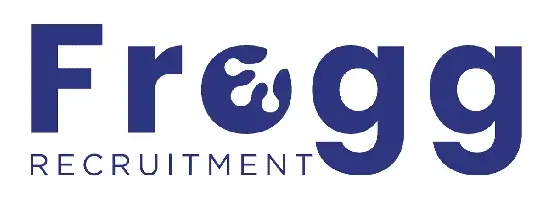Advice and tips on how to ace a Job Interview
Are you seeking advice and tips on ace a job interview?
Applying for jobs is the easy part, job seekers would say. The process of applying for an available vacancy and getting the interview. Finally, how the get the job offer (how to get the job offer will follow in a follow-up article).
How to start – A resume or a Curriculum Vitae, is much more preferred. A well-written CV is still the most accepted form of applying for a vacancy.
With that said, we will focus on some of the BIGGEST mistakes and BEST tips we have found in jobseekers. This list is not the ‘be all and end all’ of how to compile a great CV. It will go a long way in making sure your CV is noticed. Hundreds of CV’s are re-screened daily by HR personnel and Recruiters (also called ‘screeners’).
IMPORTANT FACTORS TO TAKE INTO CONSIDERATION WHEN CONSTRUCTING A “RESUME” OR “CV”
RELEVANCE
There is nothing more frustrating to the screener than to open the CV of an applicant that has absolutely NO chance of being invited for an interview. The reason might be that the applicant possesses none of the minimum requirements. READ THE JOB SPEC CAREFULLY BEFORE APPLYING.
Do not make a fool of yourself by just applying randomly. The screener will not automatically think this applicant is not suited for this position. They will move on, but we have another position that applies’ as a screener goes through hundreds of CVs.
READ THE ADVERT PROPERLY – Advice and tips on how to ace a job interview
You may feel you have a chance to get this job you are applying for. Why do you then send the same CV you sent for another vacancy?
Why not tailor your CV in an honest way to showcase your relevant talents and experience? You have many more skills that you might initially know of, and only you can explain it to the screener.
There are many ‘similar’ positions open in a variety of industries, however, industry experience is a must these days.
If you are an entry-level job seeker, do not try an apply for positions where experience is necessary. Yes, it is a ‘Catch 22’. Instead, focus your efforts on internships and apprenticeships where companies are only seeking first-time work seekers. You will save yourself a lot of frustration.
Other aspects to respect in the advert could be proficiency in specific software, an extra language, or years of experience in a specific role or responsibility. Others include driver’s license requirements, passport requirements, travel requirements, and even the gender they prefer.
Many companies these days also use software to find the best candidates out of all the applicants and CVs that might be on their database. Usually, more frequently than not, the software is designed to pick up certain specific keywords. Making sure your CV has relevant information increases your chances of being properly reviewed and perhaps even getting the interview.
Try and understand all the requirements the company has, and if you truly feel you will add value then elaborate it specifically in your CV but keep it short.
THE COVER LETTER
The document, which could be overlooked but has proved to have traction over the last couple of years. The reason is once again that the screener does not have the time to read every cover letter in detail to see the relevance of your possible suitability. It has proven that the Cover Letter becomes so detailed and consists of long paragraphs (see next section on paragraphs) that screeners just skip it and go after the meat of the CV. Should you absolutely have to motivate certain factors in your CV, do it in such a manner so that the screener can see it right away.
STRUCTURE OF YOUR CV
A standard structure of a great CV has always been a topic of conversation between screeners. There is one simple truth though: Keep It Simple! We all have so much to say, and we wish to make the best impression with our CV, and with this, we sometimes start to Google the formats, and even go so far as to import pre-made formats from Microsoft Word. We see words such as “Chronological”, “Functional” and “Combined” and we follow the format and think this is going to be perfect.
The realistic answer is that there is no perfect structure.
The first thing to keep in mind (in line with the above section) is to not write paragraphs. Keep it to bulleted items wherever possible, especially in describing your present and past duties. The screener is after information and not the overall beauty of your CV. Be sure to check your spelling and your grammar…twice.
Personal Details
Provide your personal details as detailed as possible (living location, contact details, gender, age, citizenship and/or country of birth, languages and proficiency in each, driver’s license, main mode of transport, citizenship and passport/travel record, criminal record) honesty goes much further.
Career Summary
Give a career summary and include your starting and ending dates as well as the reason for each change of employment. Stay away from general statements such as ‘end of contract’, rather also include the reason for the end of the contract such as “Temp Contract to stand in for Maternity Leave” or “Project Based and Project was completed”. Follow advice and tips on how to ace an interview through a reputable recruitment agency like FROGG Recruitment
If you were dismissed for misconduct, incapacity or poor performance then list it, give more detail, or ask the screener to contact you for more detail. See the part on Referees down below for more. You can always include in the first part of the CV (not to confuse it with a covering letter) why the screener first should take your application into consideration. Although you might not meet the requirements of the letter.
References/Referees
Strictly speaking a reference is a written letter made by a Referee. A referee is the supervisor/manager who could be contacted by the screener to verify your previous employment and with whom to conduct a formal “reference check”. Nonetheless stating an invalid Referee in your CV will undoubtedly disqualify your application.
Keep it honest.
Should you have a soiled career history declare it forthwith. Many positions have been filled by people who have admitted to making a mistake in the past but had the courage to admit it and learn from it. Trying to hide previous misconduct will not play in your favour. On the other side of the coin, your Referee’s statement could make the scale tip in your favour.
FINER DETAILS
Along with the “READ THE ADVERT” section above, other finer details that screeners pick up immediately will most usually make the difference between your CV being shortlisted or not.
Some considerations are the following:
Living Location
Companies are looking for someone already staying close by to their offices. On occasion the spread for candidates is increased, so make sure the company will be willing for MS Teams/Zoom Interviews or will be willing to pay for an air ticket, etc. That is if they are looking for a potential Candidate from other areas.
Age
Yes, this might perhaps seem unfair to some at the first outset, but with age comes experience and a certain level of expertise. Companies sometimes want people they can mould and at other times someone that can ‘hit the ground running’. Make sure you at least provide your birthday, if you feel you might be out of the age range (especially if the advert states something like ‘young’). State your age and comment that you still view yourself as ‘young’.
Relevant qualifications
There might be a qualification you have that could support your application. Include your relevant qualifications as detailed as possible, with the service provider where you achieved the qualification and the date achieved.
IRRELEVANT INFORMATION:
There is certain information in your CV that you do not need to provide such as:
Achievements that have no relevance
Being a sports team captain in high school or achieving an art or Debate Prestige Award has no relevance. UNLESS it is in line with what you are applying for. Be sure to showcase your relevant strengths and experiences.
No body particulars
If you are not applying for a position as a model, sports coach, or a vacancy where your body plays any part, there is no need to provide your weight, height, eye colour. Also, be wary if you decide to provide a picture of yourself. This might be relevant to certain positions such as sales reps or brand managers. However, a ‘top down’ selfie showing cleavage or a shirtless photo showing off your sixpack will not be respected by most.
Photographs are generally accepted as a face photo from the shoulders up and with a front view.
Hobbies
Although stating that your hobbies include watching TV and listening to music shows that you are human, it will not necessarily support your application. Generally, refrain from stating your personal hobbies or extracurricular activities otherwise.
General Skills
This might be a point of debate for some, especially after the whole SKA movement (Skills, Knowledge, and Attitude) of the mid-2000s. However, listing your key skills without any supporting evidence in your past and present duties might be a mood killer. Rather display your ‘SKAs’ in your working history rather than stating a long list of your skills that almost looks like a ‘copy-paste’ exercise from a Google search.
RESPOND TO CORRESPONDENCE ASAP
It does not really need to be stated but should someone contact you after your application be sure to respond. If it is a telephone call and you cannot talk, make a time when you are available. If it is via email respond as soon as you can.
If supporting documentation is needed, then provide it as soon as possible. A good practice will be to have certified copies of your ID, Drivers Licence, Qualifications, and any other documents ready on PDF to be sent electronically. Save this on your phone or in any other convenient manner, so that it can be sent at a moment’s notice.
Sometimes placements can be as quickly as 24 hours, sometimes it can take two to three months, however, your willingness to correspond quickly says a lot to the screener and can be used as a motivational factor.
CONCLUSION
By following the tips, you will not only increase your chances of getting invited for an interview, but you will feel more confident during the interview while you are sitting in front of the interviewees. If you want to find out more about what we do as one of the top staffing agencies, view Our Expertise.
Remember – screeners want to give you an interview, and the only person keeping you from the interview is yourself…do the right thing – have a great CV and apply for the right vacancies.
Please share a comment or feel free to post a comment on our social pages Facebook, LinkedIn and Instagram.
Related Posts
-

Overcoming “Unconscious Bias” in Employing.
- 0 Comments
- 1182
Continue ReadingOvercoming “Unconscious Bias” in Employing.
Always aim to select the ideal individual for the position. Your choice to hire a candidate is based on their suitability for the position. Or at least, you think you are doing that. You sincerely think that your choice is the outcome of a deliberative process. And that’s entirely typical. Humans, however, are unaware that their choices are frequently skewed in some way. Overcoming “Unconscious Bias” in Employing is easier than you think, one needs to focus on what’s needed. Knowing How to improve your hiring process in 8 easy steps is very important.
Your decision-making is guided by an unconscious bias. a prejudice that affects employment decisions and whether you choose to work with “the right person” but that you’re not always conscious of.
What is unconscious bias?
The phrase “unconscious” or “implicit bias” refers to mental processes that enable people to behave in ways that support stereotypes even though our conscious minds would find that action to be in opposition to our moral code. Affinity bias, which occurs when people gravitate toward those who look, act, and think like they do, is closely related to unconscious bias.
Even in the early phases of hiring, you might be more influenced than you realize by a candidate’s résumé photo, name, or location. In other words, unconscious prejudice uses characteristics unrelated to the job to affect your choice, either favorably or unfavourably.
Why You Should Avoid Unconscious Hiring Biases
Biased hiring creates less diverse teams, even though diverse teams consistently outperform homogenous teams. In the end, unconscious bias may result in financial losses for your company.
Biased hiring practices can also increase employee turnover, which can cost a company up to twice the employee’s yearly compensation in lost productivity. Why is this topic Overcoming “Unconscious Bias” in Employing so important? It is crucial to understand the concept. Hiring staff can be a daunting task. If you follow the hiring guidelines it should not be that difficult at all. Top Recruitment agencies can assist with this, we are not bias-oriented and look for candidates that match the client’s requirements. Also important is to increase your employees’ work performance during periods throughout the year.
Bias-based hiring decisions—based on stereotypes, gender, physical attractiveness, etc.—can also have serious legal repercussions.
But fortunately, there are measures in place to lessen hiring discrimination (go straight to that part). Let’s first examine the most typical forms of hiring bias, though. Do any of these things ring a bell?
Common Types of Unconscious Bias in Hiring
Confirmation Bias
Confirmation bias occurs when we make an initial opinion of a candidate and then seek out and concentrate on data that confirms that impression. This involves ignoring red indicators that contradict our opinions and asking irrelevant, unimportant interview questions that validate our beliefs.
Attribution Bias
The propensity to blame a person’s actions on their personality rather than any external circumstances is known as attribution bias. In essence, it causes us to overvalue a person’s personality features and underestimate the impact of their unique situation. Still perplexed? As we explore this unconscious prejudice in greater detail, read on for some examples.
Affinity Bias
Affinity bias, also known as similarity bias, is the unconsciously occurring human propensity to seek out those with histories, interests, and beliefs that are like one’s own. While we may believe that we deliberately choose the individuals we associate with based on their moral qualities, the truth is that we often struggle to be unbiased in our choices of friends and acquaintances. People frequently gravitate toward others just because they make them think of themselves.
Halo Effect
The “physical attractiveness stereotype” and the “what is beautiful is also good” premise are other names for the halo effect. Overcoming “Unconscious Bias” in Employing the best candidate for the position at hand should not be the end of the world. It’s simply changing your mindset.
A form of cognitive bias known as the “halo effect” occurs when our overall opinion of a person affects how we feel and think about their character. In essence, your assessment of a person’s general impression (“He is nice!”) affects your assessment of that person’s specific characteristics (“He is also smart!”). People’s perceptions of one quality can influence their perceptions of other characteristics.
Horn Effect
In many ways, the horn effect is the exact opposite of the halo effect. The horn effect is a cognitive process whereby we quickly attribute unfavorable attitudes or behaviors to someone based on one element of their appearance or personality. Obese people, who regrettably are sometimes characterized as being sluggish, slovenly, or irresponsible, are an example of this. Hiring supervisors could have a “bad feeling” about someone right away based on their appearance, speech, or even body language.
Difference between the horn effect and the halo effect
Halo effect: A positive first impression that leads us to treat someone more favorably.
Horn effect: A negative first impression that leads us to treat someone less favorably.
Conformity Bias
When we consciously align our behaviors, beliefs, or attitudes with those of a group, conformity bias emerges. Other people can impact us even when they are not physically there because this transformation occurs in reaction to either real or perceived group pressure. For instance, how we perceive what other people are doing often determines how much energy we use at home, how much we pay in taxes, and how much we donate to charities.
One aspect of social influence is conformity, or the propensity to have the same views as the majority. The many ways that other people might affect our conduct are referred to as social influence. Small groups and society at large both exhibit a tendency to conform, which can be caused by both subtle unconscious influences and social pressure.
Gender Bias
Unintentional and automatic mental associations based on gender that are derived from customs, expectations, norms, values, culture, and/or experience are referred to as unconscious gender prejudice. Automatic associations are used in decision-making to quickly assess a person’s gender and gender identity and stereotypes. Organizations can work to combat gender bias and other forms of prejudice, so even when a person exhibits unconscious gender bias, this does not necessarily convert into prejudice in the workplace.
Affect Heuristics
This occurs when recruiters conclude a candidate’s suitability for the position without thoroughly weighing all the available data.
Simply said, you are making decisions about someone’s eligibility for a job based on unimportant, superficial considerations that have no bearing on how they would approach the task at issue. For instance, you might assume that someone is incompetent because of their evident tattoos or because they are overweight simply because you don’t like that personality attribute or trait of theirs.
Overconfidence Effect
When someone’s subjective judgmental confidence exceeds their objective judgmental accuracy, this impact is what happens.
For instance, when someone feels overconfident making employment decisions based on their gut feelings is a smart idea. Overconfidence is frequently the product of confirmation bias (see below), which makes people recall instances in which following their intuition resulted in a successful hire while ignoring or forgetting instances in which it failed.
Avoiding Unconscious Bias in Recruitment
When you aren’t aware you’re doing something, it can be difficult to quit. The good news is that you can recognize your prejudices and even acquire strategies for minimizing them.
Let’s examine the tactics that are successful in decreasing recruitment bias.
Awareness Training
Biases can occur during every step of the recruiting and recruitment process, from reviewing resumes to creating job descriptions to conducting interviews to extending an offer of employment.
Review job descriptions
According to studies, the language used in job advertisements and job descriptions is crucial for attracting a variety of talent. Even the choice of keywords can have a significant impact on the number of applicants for your open position. Words like “competitive,” “determined,” and “assertive” are likely to discourage female candidates, whereas “responsible,” “connect,” and “dedicated” seem to boost their response rates.
Reviewing your CVs blindly
By excluding any information that would tempt you to make judgments about applicants’ gender, color, age, or other characteristics, you can review applications objectively. You can evaluate CVs more objectively, unearth some hidden gems, and identify the most qualified individuals for your interview by removing this type of content utilizing software applications.
Standardize the interviews.
Interviews that are structured are twice as effective as those that are not, according to research. You can lessen interview prejudice by posing identical questions to every applicant.
In conclusion, even if we sincerely want to increase diversity in our employment process, unconscious bias persists. Though we may not be able to eliminate our unconscious prejudice, we can always begin by attempting to understand how it influences our hiring decisions. In the end, we’ll be more aware of it when it does occur. For more trending article topics and related content, follow our social pages Facebook, LinkedIn, Instagram.
-

Cover Letter do’s and dont’s
- 0 Comments
- 3029
Continue ReadingCover Letter Do’s and Don’t.
When you apply for a job, you frequently submit a cover letter along with your CV/resume. It is a chance for you to market your application and establish yourself as a qualified candidate. It is referred to as a “letter of introduction” or an “application letter.” Your cover letter shouldn’t be a carbon copy of your CV/resume. It should rather explain why you are the best candidate for the position based on the qualifications shown on your CV. Let’s we discuss the cover letter do’s and don’ts.
Do’s of a Cover Letter.
Demonstrate that you have done extensive research.
Conduct thorough research before putting pen to paper for your cover letter. To achieve this, go beyond simply reading the job description. Your research will give you invaluable context and background information. After all, you want to ace the interview and get a job offer right? However, understanding more about the company you want to work for will help you decide how to change the tone of your cover letter. More and more companies are investing in mastering the factors that drive Job Satisfaction.
Here are some details you might want to include:
The name of the person likely to receive your application.
The position you’re applying for.
What the corporate culture of the company is like.
Their standing in the industry and top rivals
Any noteworthy developments or news in the industry recently
The aims and objectives of the business
Whether the business has any difficulties
2. Make a compelling opening statement to get their attention.
As with any writing, the goal is to immediately capture the reader’s interest to avoid losing them. Think outside of the box because many other candidates will use the cliché “I’m applying for this role because…” What makes you unique? What is the most interesting fact about you that people should know? Try to express that you are really thrilled about the position and are a good fit for it.
Think creatively, but we advise against using humour. Although it’s acceptable to be humorous (yet consider each organization individually), keep in mind that this is a professional job application.
3. Demonstrate your contribution’s worth to the business in a clear manner.
This is a broad generalization, but the goal of recruiting a new employee is to locate someone who can assist the company in solving difficulties. Your cover letter should demonstrate to hiring managers how you can contribute to the team or department you’ll be joining by helping them resolve issues. Below we discuss the cover letter do’s and don’ts.
The most effective method to do this is to discuss how your prior professional experience has prepared you to handle obstacles in your career. Thereafter relate those experiences to the position and organization you are applying to.
4. Emphasize your passion for the position.
This new employment opportunity is thrilling since it gives you the ability to advance your career with like-minded coworkers. This is well related to job satisfaction for you as an employee. While working for a business you’ve long liked. You sincerely desire the position. If not, you wouldn’t be applying, right?
Make that very apparent in your cover letter, then. Many other applicants will have the necessary qualifications, some even more qualified than you. The hiring manager will be looking for excitement and commitment to the position. Be sincere and put all your heart into the cover letter; sincerity sells.
When writing, try to utilize language that the hiring manager who will likely review your application would use when speaking with clients. You might need to conduct a little extra research to fully understand this.
5. Say more by saying less.
You might be wondering how much space your cover letter should take up. You cover letter should be no longer than one side of an A4. If it’s longer, why not shorten it? You can practice a written sense of self-management here.
Keep in mind that CV already has a ton of information. Everything that is on your CV is not to be repeated in your cover letter. You can reiterate crucial points that are directly related and relevant to the position. Otherwise, avoid repeating your abilities and prior experience. If you are successful in doing that, you will have more freedom to express your enthusiasm for the position and the letter will be brief enough for the hiring manager to skim it.
Don’ts of a cover letter.
Avoid these common cover letter mistakes:
Avoid reiterating material from your resume.
Certain cover letters only restate the resume’s content in writing form. Think about the benefits a cover letter can give to your application. Make sure it contains additional information not found on your resume and further establishes your position as a candidate. Always make sure to present an updated resume, this is crucial as your interest will show.
2. You claimed that the position would help you advance your skills.
Even while it very well may be the case, it is not appropriate to mention in your cover letter how much you would love this position because it would allow you to advance professionally. Keep in mind that you should highlight your strengths rather than how this position will benefit you.
Some applicants spend a significant amount of the space in their cover letter describing why they believe the position is ideal for them or how long they have desired to work there. Even though the data is flattering, you could want to add useful data that emphasizes your strengths as a worker and what you have to offer.
3. Don’t concentrate on your existing position or qualifications.
Your career history, including your schooling, is valuable. Instead of repeating it, use the space in your cover letter to explain why it is important. Instead of listing your degrees, for instance, describe what you learnt and any skills you acquired during the process. Describe how your knowledge and talents are a benefit to the business.
4. Do not submit an unrevised cover letter.
Your cover letter serves as your introduction. If there are any spelling or grammar mistakes in your letter, that will be the company’s first impression of you. Write several drafts of your cover letter as many times as necessary before choosing the one that will be submitted.
5. Avoid using too many keywords.
Some software detects when a text contains an excessive number of a particular keyword and either rate it poorly or discards it. Write your cover letter with well-structured sentences and planned thoughts. Make your information count because a real person will read your cover letter after it passes the software assessment.
In conclusion, although cover letters are not usually needed, they are used by hiring managers to evaluate an applicant’s qualifications, experience, and background. Writing an excellent cover letter requires demonstrating how your professional background fits the requirements of the available position and the company’s culture. For more related topics or advice follow our social pages, Facebook, LinkedIn and Instagram


